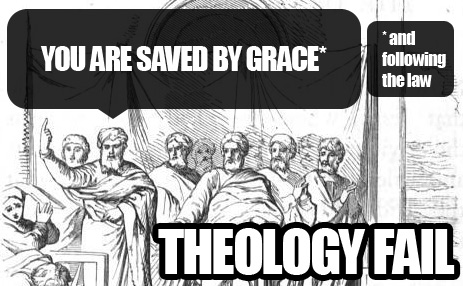And of course, the post in question was not addressed to you per se but to anyone and everyone who wants to be under the law.
If that is you, then consider that the passage in question refutes your position.
If that is not you, then ignore the passage or else simply take it as edification to your heart and not as any kind of rebuke.
Don't play naive, brother. You posted that right after we had an exchange about whether the Law is based on faith. Your position was that it is *not.* My position was that it *is.* And then you posted how the Law is *not* of faith. Either that is total coincidence, or you still have yet to answer the question: Did the Law operate through faith?
Once again, you have to answer the question: was the Law intended to operate by faith or not? You are side-stepping the issue by questioning whether I personally believe the Law is still in effect. You should know, by my answers, that I do *not* believe the Law is still in effect!
And so, you're just avoiding the matter that I raised, or ignoring it altogether. In that case, I'll assume you don't have an answer or simply do not feel a need to respond.
Again, my view is that the Law, as all systems of God, do operate through faith. But this is just of the generic kind, and not of the kind in which Paul used "faith" as a shortcut for "faith in Christ." The Law did not have "faith in Christ" because Christ had not come yet, and also because the Law in itself could never have done what Christ alone could do.
The object of both the Law and Christ was to lead Israel towards eternal life. That required eternal redemption. Only Christ could do that. But the Law was a step in that direction, by leading Israel, through faith, to Christ, who would fulfill the Law. That is, obedience to the Law could lead to obedience to Christ. Both operated by faith, but only Christ could provide the end goal, which is eternal salvation.
So when Paul said that the Law did not have faith, he used "faith" in a very technical way, and we should understand that. We should *not* understand that to mean the Law did not operate through any faith at all. Comprendes?


